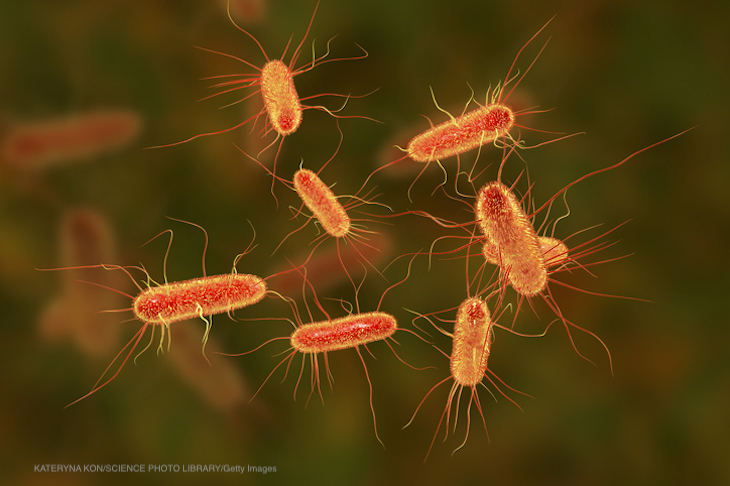A confirmed Huntley High School E. coli outbreak has sickened at least six students in that school in Illinois, according to the McHenry County Department of Health. The Huntley Community School District 158 is working with the health department to respond to the Shiga toxin-producing E. coli (STEC) outbreak. That school is located at 13719 Harmony Road in Huntley.

The first illness was identified on Sunday, September 17, 2023. At this time, officials do not know the source of the illnesses. The county is actively monitoring for potential cases, since E. coli is a reportable condition, and there are no other known cases in McHenry County outside of the school outbreak.
School officials sent a letter to parents, students, and staff, telling them that they are taking the situation seriously, and that the safety and well-being of students and staff is important. School officials are fully cooperating with the health department as they continue their investigation.
E. coli bacteria are highly contagious. The illness is passed through contaminated food and drink, through contact with surfaces, and person-to-person. Students are strongly encourage to wash their hands with soap and water frequently. And Huntley High School science teachers have been educating students about the nature of this pathogen.
The school is also posting handwashing signs throughout the school, and making sure that hand sanitizer stations are available in all common areas and classrooms of the school.
Shiga toxin-producing E. coli bacteria live in the guts of ruminant animals. These animals do not get sick and look and appear healthy, but they can excrete the bacteria in feces. The feces can contaminate water, milk from the animals, meat made from those animals, and the environment in which they live. That contaminated water, if used to irrigate crops, can contaminate the crops. And if meat is not cooked to a safe final internal temperature, it can make people sick.
Symptoms of a STEC infection usually include a mild fever, possible nausea and vomiting, headache, and the characteristic severe and painful abdominal cramps along with bloody diarrhea. People get sick within three to ten days of infection, and many people require a doctor’s care.
In some patients, especially children under the age of five, a complication called hemolytic uremic syndrome (HUS), which is a type of kidney failure, can develop. This syndrome is serious and can be life-threatening. Symptoms of HUS include little or no urine output, easy bruising, pallor, lethargy, a skin rash, and bleeding from the nose and mouth. Anyone experiencing these symptoms needs to see a doctor immediately.
If your child has been experiencing these symptoms, take them to a doctor. They may be part of this Huntley High School E. coli outbreak.

If you have been sickened with a food poisoning infection, please contact our experienced attorneys for help with a possible lawsuit at 1-888-377-8900 or text us at 612-261-0856. Our firm represents clients in lawsuits against grocery stores, restaurants, and food processors.




